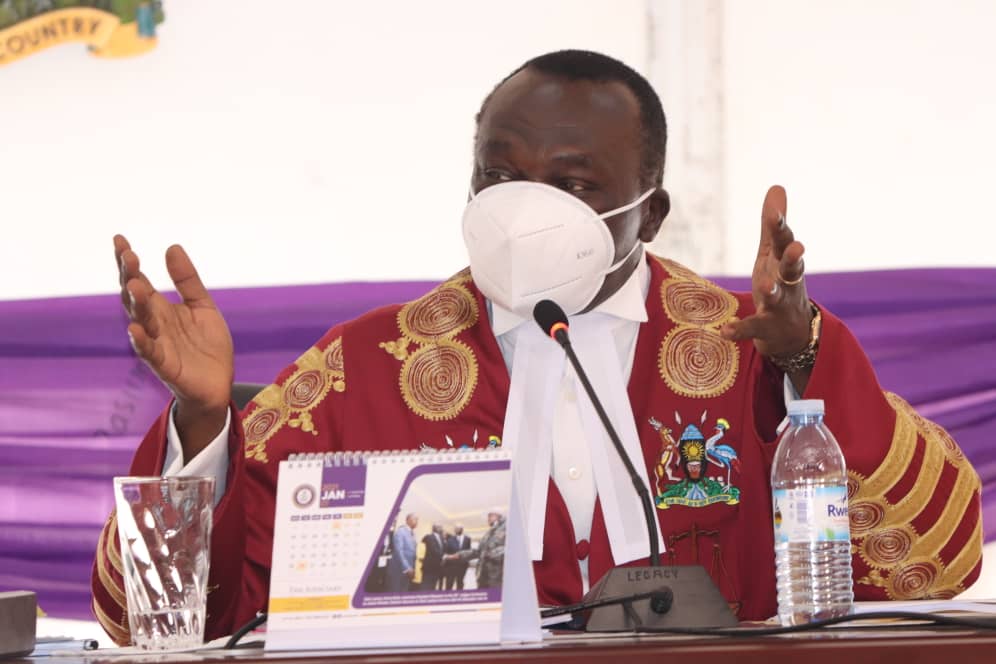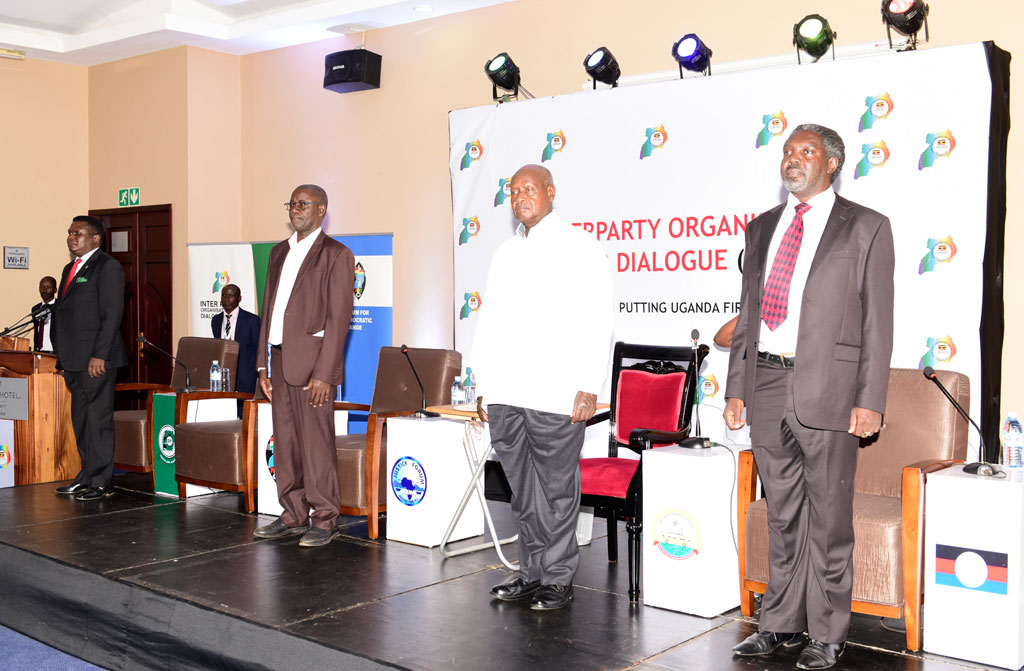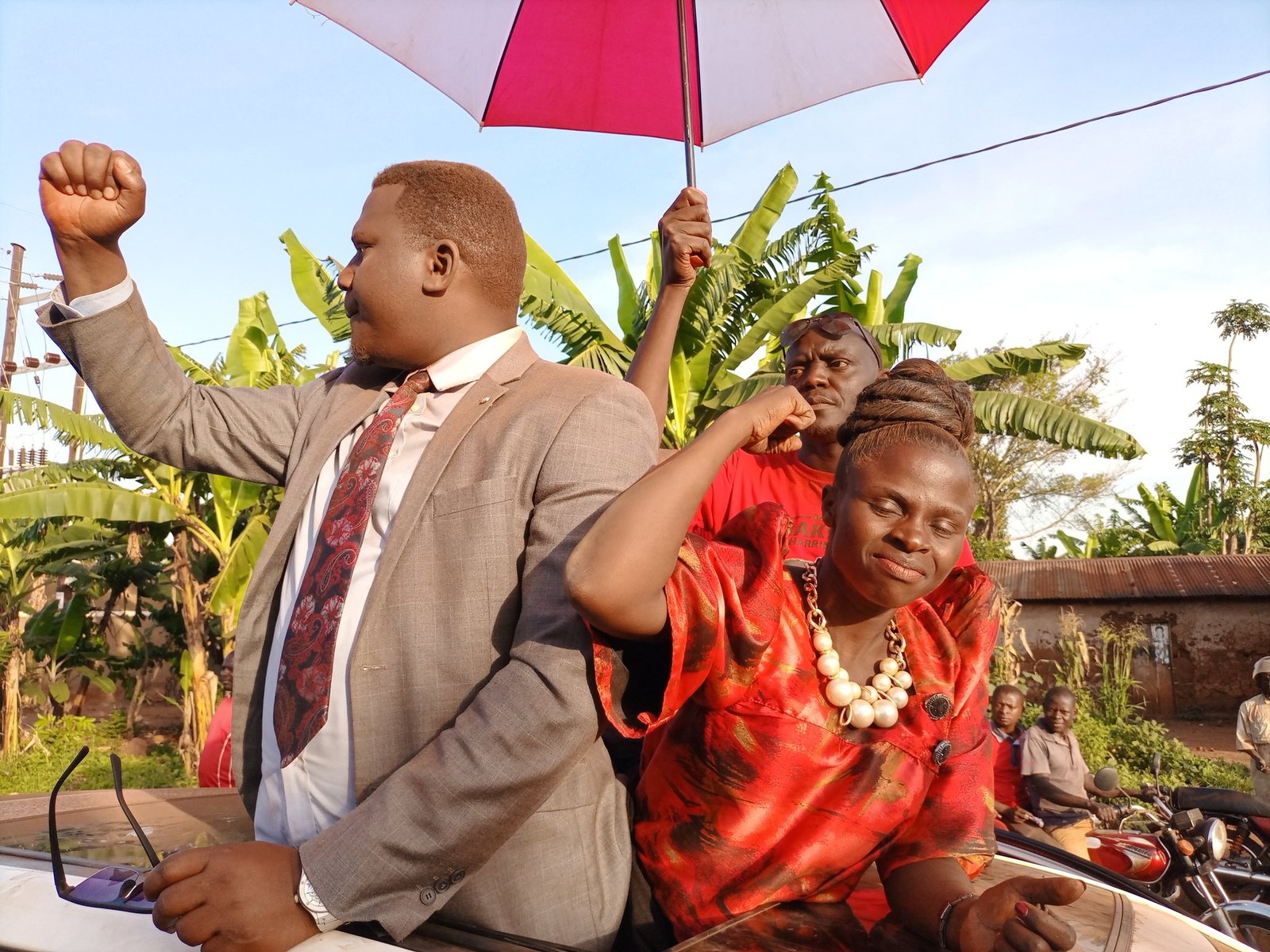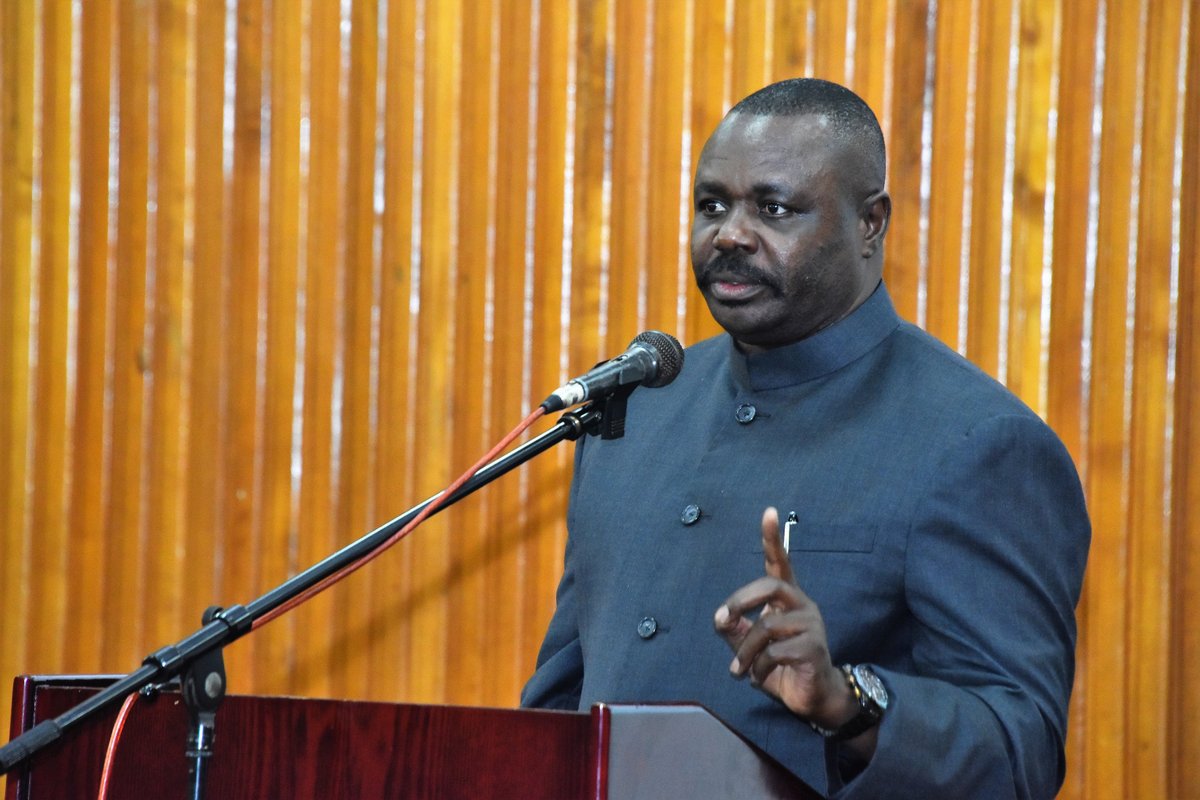The Chief Justice Alphonse Owiny Dollo has castigated the retirement of High Court Judges at sixty-five years, adding that if he had authority this is something he would change.
He was addressing the seventeen judges on Wednesday who were appointed by President Yoweri Kaguta Museveni last May, now undergoing a two week long residential induction at Imperial Golf View Hotel, Entebbe.
The head of the judicial department said it is at that age a judicial officer has gained a wealth of experience that he or she would be a reference point on matters of law and administration of justice.
He was giving accolades to former Principal Judge Yorokamu Bamwine and retired Justice David Wangutusi who he said were still a resource. In the same terms he was also not happy with the retirement of Court of Appeal judges at seventy.
The CJ who appealed to the new judges to extensively read to have legal principles on their fingertips also urged caution in granting injunction orders especially against government departments.
He said often applicants are on the wrong side of the law and simply use the orders to buy time or perpetuate their bad actions.
Where government departments are on the receiving end, the orders have the effect grounding government operations, which is dangerous.
The CJ urged the inductees to always exercise independence when discharging the judicial duties but this did not mean abusing their own conscience by abusing discretionary powers.
He said he was ready to defend any judicial officer against attack but such defence would only come if the concerned judicial officer acted within the law.
Owiny Dollo said High Court judges are a court of record, and should therefore strive to deliver fully reasoned judgments that are unimpeachable.
The Principal Judge, Flavian Nzeija who was represented by Justice Musa Ssekaana urged the new judges to allow no room for error as the cost to the litigants in some cases amounted to total erosion of livelihood.
He urged the judges to exercise good customer care to litigants especially when handling complaints against judiciary staff.
While highlighting the challenges of limited infrastructure, transport and personnel, Dr Nzeija however criticized station managers for failing to utilize the little advanced by government to handle small issues as repair of chairs and painting of court rooms.
International Development Law Organisation (IDLO) country manager, Barbara Kilei, whose organization funded the workshop asked the new judges to always divorce themselves from emotions while writing judgments, as the only way that would enable them deliver judgments that would stand the test of time.
She expressed commitment of her organization to assisting the Uganda Judicial Training Institute to build capacity of judicial officials as a bedrock of the rule of law.

















